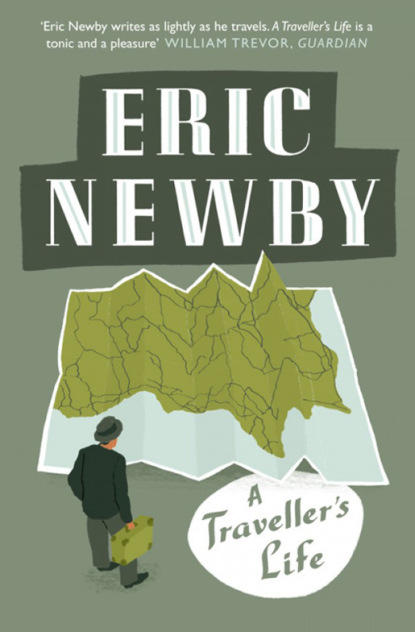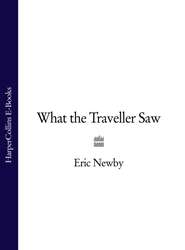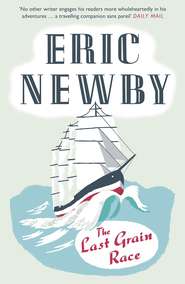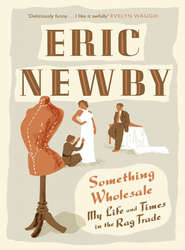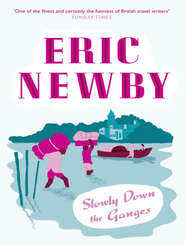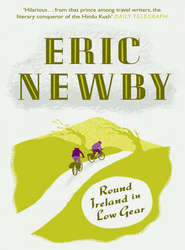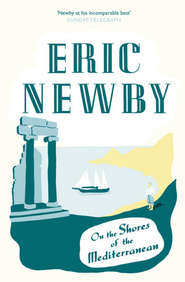По всем вопросам обращайтесь на: info@litportal.ru
(©) 2003-2024.
✖
A Traveller’s Life
Автор
Год написания книги
2018
Настройки чтения
Размер шрифта
Высота строк
Поля
Some of these men and women drank methylated spirits. If they became violent, they were ‘taken into custody’ by the police. This usually meant that a couple of unfortunate constables, sometimes one alone, had to strap the prisoner, male or female, who by this time would probably be striking out, biting and scratching, to a handcart and then wheel it a mile or more up Lonsdale Road from the Boileau Arms, which everyone called, and still calls, ‘Ther Boiler’, to Barnes Police Station with the occupant roaring loudly enough to wake the dead. If more than one person had to be taken into custody, a Black Maria was sent for.
When it dawned, the day was even more rumbustious than the night. And when the sun rose, just before eight o’clock, like the moon, it remained invisible. Thunderstorms visited many parts of the country, accompanied by hail, sleet or snow and west or north-westerly winds which reached gale force in high places. In Lincolnshire, the Belvoir Hunt, having ‘chopped a fox’ in Foston Spinney (seized it before it fairly got away from cover), ‘were hunting another from Allington when scent was totally swept away by a tremendous rainstorm’.
‘Flying Prospects’ on my birthday were not good, according to The Times. It is now difficult to imagine that a pilot, or even a passenger, might actually buy a newspaper in order to find out whether it was safe to ‘go up’, but it must have been so, otherwise there would have been no point in publishing the information at all. ‘Unsuitable for aviation or fit only for short distance flying by the heaviest sort of machine’ was what the communiqué said. ‘Sea Passages’ were equally disagreeable. The English Channel was rough, with winds reaching forty miles an hour, and there was extensive flooding in France.
But if the weather was disturbed that Saturday, it was as nothing compared with the state of great chunks of Europe and northern Asia. In spite of the fact that the advertising department of The Times had chosen this particular Saturday to announce ‘PRESENTS SUGGESTIONS FOR THE GREAT PEACE CHRISTMAS’, on it Latvians were fighting Germans, on whom they had declared war a week previously on 28 November, and so were the Lithuanians. In Russia, on the Don and between Voronezh and Kirsk and in Asia, beyond the Urals, along the line of the Trans-Siberian Railway, where typhus was raging, Bolsheviks and White Russians were engaged in a civil war of the utmost ferocity. Meanwhile, that same Saturday, while their fellow countrymen were destroying one another, with their country in ruins and becoming every day more ruinous, Lenin and Trotsky and the 1109 delegates of the Seventh All-Russian Congress of Soviets passed a resolution to the effect that ‘The Soviet Union Desires to Live in Peace with All Peoples’. On that day, too, Lenin told the Congress that ‘Communistic Principles were being utterly disregarded by the Russian peasantry.’
That day, too, much nearer home, while I was taking my first nourishment, as it were, in the open air, French Army units with heavy guns were rumbling across the Rhine bridges in order to force the Germans to ratify the peace treaty which they had signed at Versailles in June; and in the same issue of The Times which carried the headline about ‘THE GREAT PEACE CHRISTMAS’, there were other headlines such as ‘GUNS ACROSS THE RHINE’ and ‘WAR IMMINENT’, although who was to fight another war with millions killed and wounded, armies in a state of semi-demobilization, and millions more dying or soon to die from sickness and starvation was not clear. Nevertheless, that weekend, the only thing, theoretically, that stood between the protagonists and another outbreak of war, was the Armistice, signed in a French railway carriage parked in a wood, thirteen months previously, so that, equally theoretically, it would simply have meant carrying on with the old one. That weekend, too, the Americans quitted the peace conference.
There was, altogether, a lot about death in the papers that Saturday. It was as if Death the Reaper, an entity embodied by cartoonists in their drawings as a hideous, skeletal figure, and it would have been difficult to have lived through the last five years without thinking of death as such, had become dissatisfied with his efforts, had once again sharpened his scythe and was already cutting fresh, preliminary swathes through the debilitated populations of the vanquished powers, as if the great influenza epidemic, which reached its peak in Britain in March 1919, and which altogether killed more people in Europe than all the shot and shell of four and a half years of war, had not been enough.
In Britain, that Saturday, things were rather different. Bank rate was six per cent, exports were booming. On Friday, the US dollar closed at $3.90 to the pound. The only disquieting news that morning, and that was more or less a rumour, was that there was a possibility of a number of pits being forced to close in the South Wales anthracite fields.
Altogether, for many people that Saturday, life seems to have gone on much as it had done before the Deluge. Giddy and Giddy, House Agents, offered a luxuriously furnished town house, facing Hyde Park, with thirteen bed and dressing-rooms for £26.25 ($102.40) a week. Harrods announced Laroche champagne, 1911, the last vintage generally available (shipped) since the war, at £6.50 ($25.35) a dozen. Very old vintage port (Tuke Holdsworth) was £4.50 ($17.55) a dozen. Not advertised in The Times or the Daily Telegraph, but still listed in Harrods’ enormous current catalogue, (and for some years to come) under ‘Livery’, were red plush breeches for footmen.
Domestic servants were still comparatively inexpensive, although more difficult to find, than they had been before the war. That Saturday Lady Baldwin, of 37 Cavendish Square, advertised for a housemaid, ‘five maids and a boy kept, wages £28–£30 ($109–$117) a year’. And there were vacancies for live-in under nurses, at £25 ($97.50) a year, the price of a high-class baby carriage of the sort that my mother had acquired for me.
That Saturday, too, wholesale garment manufacturers, at what was, and still is, known as ‘the better end of the trade’, the sort of firm my father was a partner in, were advertising jobs in their workrooms for bodice and skirt makers at around £2.50 ($9.75) for a five-and-a-half-day, forty-nine-hour week (8.30 a.m. to 5.30 p.m. week-days, 8.30 a.m. to 12.30 p.m. Saturdays), £130 ($507) a year, which made the 50p spent on announcing my birthday seem hideously extravagant.
That Saturday some London fashion houses, including the then ultra-fashionable Lucile, in Hanover Square, were advertising for ‘Model Girls’, in emulation of Paul Poiret, the Parisian designer, who had just returned from the army and for the first time showed clothes on living models.
A sketch in The Times that Saturday shows that clothes were good-looking, if not positively saucy. Dresses, according to their fashion correspondent, were ‘décolleté, sometimes dangerously low’, in brilliant colours, with tight, mid-calf-length skirts. Jet was high fashion for the evening: embroidered on coloured velvet, used for making girdles and shoulder straps. Feathers, which had been used for years for making headdresses for evening, were being replaced by flowers, ‘as little like nature as possible?’, although another couple of years were to pass before the Importation of Plumage (Prohibition) Act became law. The ultra-fashionable were already wearing the long, skimpy jerseys which were to become a sort of hallmark of the 1920s; but there was nothing about them in the papers the day I was born.
Yet in spite of all this display of what an American politician described as ‘normalcy’, ‘The Great War’, as it would still be referred to by the British far into the next one, although over, must have seemed terribly close to most people, as it still must do today to anyone reading some of the classified advertisements which appeared in the quality papers that Saturday. The request for a lady or gentleman to play once a week at a thé dansant in a hospital for shell-shocked officers. The offers to keep soldiers’ graves trimmed and lay headstones in the neighbourhood of Albert, Bapaume and Péronne – the dead had not yet been gathered together in communal cemeteries. The endless columns of advertisements inserted by ex-servicemen, under ‘Situations Wanted’ (there were 350,000 of them unemployed), part of the huge citizen army of the still living that was being demobilized into a world in which, in spite of there being whole generations of dead, there was not enough work for all. Such advertisements, inserted by ex-officers, warrant officers, petty officers, NCOs and men of superior education (the labouring classes did not advertise their services in this way), were some of them despairing, some of them pathetic, some of them hopeless:
Ex-Service Man. Loss of right arm, seeks situation as Window Dresser or Shopwalker.
Demobilized Officer. Aged 21, 4½ years’ service [my italics].
Good education. Left school to join up, therefore no
experience. Accept small salary until proficient.
Will anyone lend Demobilized Officer, DSO, just starting work again, £5000 [$19,500] for one year? Highest references.
Applicant desperately pressed by moneylenders. No Agents.
Write Box J.28.
Money-lenders were so numerous that they had whole classified sections to themselves. Most of them offered ‘immediate advances on note of hand alone’. Their advertisements make repulsive reading, even across such a gulf of years.
A far more prominent advertisement than any of these announced the setting up of what was called the Bemersyde Fund, opened by the Lord Mayor of London and the Right Honourable Lord Glenconner, ‘to acquire the estates of Bemersyde from its owner and have the same conveyed to Field-Marshal Earl Haig, a member of the well-known whisky distilling family, as a personal gift from the people of the British Empire – the consideration for the purchase being £53,700 [$209,430]’.
Altogether – leaving present for the headmaster (the Estates of Bemersyde), although he had not been a very good headmaster, the boys (or what was left of them, for it had been rather a rough school with a lot of mud in the playing fields) now going out into the world to seek their fortunes – there was a distinctly end-of-term feeling in the air. But in spite of this there was no singing of ‘Lord Dismiss Us With Thy Blessing’ as one would perhaps expect on such occasions and as there was at the schools I later attended. Possibly because the only songs the boys knew were not hymns but songs that had become dirges: ‘Pack Up Your Troubles’, ‘Tipperary’, ‘It’s a Long Long Trail A’Winding’ and ‘I Don’t Want To Join The Army’.
Even the Ministry of Munitions and the Admiralty were selling up. That day and every day there were offers for sale by auction of aerodromes, enormous munition factories, equally enormous hutted camps, and of minesweepers, motor charabancs, fleets of ambulances, ships’ boilers, railway engines, enough barbed wire to encircle the earth, millions of cigarettes in lots, miles and miles of ships’ hawser, inexhaustible supplies of bell tents, cereal ovens, lower fruit standard jam, wicker-covered stoneware jars, torpedo boats, with and without engines and part-worn and unworn issue clothing, etc., etc., etc., so inexhaustible that many items were still being sold off twenty years later on the eve of the next world war, when the whole stocking up process began all over again. Everything, except projectiles and the means of discharging them, was open to offer and even these would eventually come on the market, but for export only.
In fact the world was changing with a rapidity that would have been unbelievable in 1914, even though it was still possible to buy red plush breeches for footmen and under nurses could still be acquired with comparative ease. Yet it was, one sees in retrospect, only a temporary acceleration. If it had continued at the rate envisaged in 1919 man would probably have stood on the moon by 1939.
That Saturday, if the weather had allowed, one could have flown to Paris or Brussels in one of the new Handley Page Commercial Aeroplanes, at a cost of £15 ($58.50) single fare, a service of which my parents availed themselves the following year when my father went to Paris to buy ‘models’ to copy from, amongst others, Poiret and Madame Vionnet, which were made to my mother’s dimensions so that she could show them, or copies of them, in London. The fifteen or twenty passengers travelled at a speed of ninety miles an hour in a large saloon furnished with carpets, curtains, armchairs, clocks, mirrors, telephones and flower vases.
There was also news of the Aerial Postmen (in The Times), who for the last fifteen weeks had been carrying mail between Hounslow and Paris, taking about two and a half hours. And there were confident predictions that morning of regular mail services to Madrid, Vienna and Rome, and even further afield: to Cairo in twenty-three hours, a journey which then took four days; New York in forty-seven and a half hours instead of five and a half days (Alcock and Brown had succeeded in flying the Atlantic nonstop from Newfoundland to Ireland in June); Tokyo in sixty-six hours, instead of fifteen days; and even London – Sydney in an estimated hundred and twelve hours, against a month.
This was no madman’s dream. Even while the readers were digesting this information that Saturday, Captain Ross Smith landed safely in West Java, while on what was to be the first flight from London to Port Darwin, which he reached on 10 December, having covered 11,294 miles in 668 hours 20 minutes, just under twenty-eight days.
Even more incredible, especially to older readers, must have been the realization that the widespread use of the internal combustion engine was not just a phenomenon of war, and that for all practical purposes horse-drawn vehicles were doomed. If they did not believe the evidence of their own eyes, when now long ago they had seen, for example, the first horse-drawn brougham converted to run on electricity, it was only necessary for them to glance through some of the classified advertisements in the newspapers under ‘Horse and Carriages’:
ALDRIDGE’S, ST MARTIN’S LANE. LONDON.
ESTABLISHED 1753. On Wednesday, 10 December. Well known stud of horses, newspaper vans, harness and stable sundries, the property of the Star newspaper, who are discontinuing their horse department and adopting motor transport entirely.
ELEPHANT AND CASTLE HORSE REPOSITORY … Motor Auction Sales every Thursday at eleven o’clock.
That Saturday while I lay in my nursery in SW13, tucked up in a bassinet, which was shrouded superfluously in voile to keep off any stray draughts that might conceivably be about, and with a good coal fire burning in the grate, a number of totally unconnected events occurred and were reported in The Times the following week.
That day the Bishop of Oxford confirmed more than two hundred boys at Eton; ten people were injured in a tram accident in Hackney; Field-Marshal Sir Evelyn Wood was buried with full military honours at Aldershot; four thousand members of the United Garment Workers Union met in the Mile End Road to demand a forty-eight-hour week; and at a congregation held at Cambridge, the Vice Chancellor presiding, a proposal that a syndicate be appointed to consider whether women students should be admitted to membership of the University and, if so, with what limitations, if any, was carried without opposition.
That day also, Renoir, who had died three days previously at the age of seventy-eight, was buried; the entire staff of the Army and Navy Stores which had been on strike went back to work;
(#ulink_9f254c9e-2263-5a65-b82f-c9a49519e483) ex-soldiers at Bangor Training Centre completed a pair of shooting-boots for the Prince of Wales; the body of a young woman, wearing a velvet blouse, dark skirt and patent leather boots, was washed up by the tide at Swansea; Florence Langridge was sentenced to three months for giving Harrods a dud cheque, while masquerading as the widow of a captain of Hussars; William Docker, nineteen years a railway shunter with the Great Western Railway Company, more harshly dealt with, was given three months with hard labour for stealing a dozen pairs of stockings from the company; Stoke Poges beat Oxford University at golf; the will of Henry Clay Frick was published – he left $145,000,000 (about £38,250,000) bequeathing all but $25,000,000 (about £6,250,000) to educational and philanthropic objects.
That evening the members of the Overseas Club entertained the staff at a fancy dress dance, a function at which I would, in retrospect, have dearly liked to have been present. Just as I would also have liked to have been present at Diaghilev’s productions of La Boutique Fantasque, The Three Cornered Hat and Midnight Sun at the Empire Theatre, with Karsavina, Tchernicheva, Massine and Svoboda; although as a future traveller I might have been expected to derive more benefit from attending Lowell Thomas’s With Allenby in Palestine and With Lawrence in Arabia, – ‘Two entertainments for the price of one’ – at the Albert Hall; or a showing of Tarzan of the Apes at the New Gallery; or attending a lecture on The Antarctic Expedition of 1914–17 by Sir Ernest Shackleton at the Hampstead Conservatoire.
That day, too, the Royal Mail Steam Packet Ship, Bogota, left the Thames on the top of the tide, bound for Valparaiso.
That afternoon the muffin man ringing his bell went down Riverview Gardens, the side road outside ‘Ther Mansions’ as the local tradesmen who dealt with my mother called them, in which there were other blocks of flats, carrying his muffins in a wooden tray covered with a green baize cloth, which he balanced on his head; and the lamplighter came and went on his bicycle (lighting-up time that evening was 4.21 p.m.), lancing the gas lamps in the street into flame with a long bamboo pole.
I did not know about any of these exciting things, and if I had I would not have cared. I had no intention of going anywhere, certainly not to Valparaiso in the SS Bogota. And so ended my birthday. For all concerned it had been a jolly long one.
(#ulink_776a55d5-1cb3-5cee-b736-4f1c4bb4f80a) All sums of sterling have been converted from pounds, shillings and pence to their decimal equivalents and to American currency of the time.
(#ulink_b5d912ec-89f0-51ad-9f57-ed8a51b7560a) Up to this time employees at the Army and Navy Stores had worked a sixty-hour week, and men of sixty were being paid as little as £2–£2.25 ($7.80–$8.80) a week. In one department fifty women were employed whose average wage was less than £1.26 ($4.90) a week. The strikers who received much sympathetic support from the public and the newspapers were successful in improving their lot.
CHAPTER TWO The Baby as a Traveller (#ulink_dff1b6ec-fe05-5a32-a92d-a3d821a6d7f8)
At the time I was born, and for long afterwards, ‘middle-middleclass babies’, of whom I was one, rarely travelled in motor cars, ‘middle-middle-class motors’ being mostly open ones, and sometimes difficult to close if a change of weather demanded it. When I went on holiday the year after I was born, and the year after that – and photographs assure me that I did – it was by train from Victoria, Waterloo, or Liverpool Street with lots of trunks and my vast £25 ($97.50) pram with its fringed awnings and a sort of shotgun holster for parasols or umbrellas, according to what was going on overhead, which needed a couple of porters to lift it into the guard’s van, which meant lots of lovely tipping. In those years I went to nice, unadventurous places such as Frinton, Bembridge, Broadstairs, or Cliftonville which was ideal for babies because there nature had been almost completely eradicated. I cannot remember the lot, for I spent a week here, a week there, presumably as the spirit moved me.
Down on the beach at one or other of these or similar resorts, surrounded by babies of similar age and condition (The Times recorded some nineteen babies as having been born on the same day I was), I used to pass the cooler days at some of them against a background of cliffs and the only recently outmoded, horse-drawn bathing machines which, horseless, rather like the electric brougham but without the electricity, still performed the function for which they had been built but were now parked permanently above high-water mark. If the temperature rose above 55° Fahrenheit, an admittedly rare occurrence at the seaside (which is also the correct temperature for serving draught beer in Britain), we would all insist on being taken indoors and placed in our bassinets, still swathed in voile, not as a protection against treacherous currents of air but, on the same principle as Bedouins swathe themselves in wraps, against the intense heat.
The truth is that babies do not like travel, and I was no exception. Babies are unadventurous. Babies act as grapnels to prevent ‘the family’ dragging its ground. That is why they were invented. Perversely, their desire for fresh horizons comes much later when they have already begun to ‘attract’ fares, and can no longer travel free; by which time they are no longer babies at all.
The prospect of the Great Glen, the Grand Canyon, the wastes of the Sahara at sunset, the entrancing, set-piece landscapes of Tuscany, all leave them equally indifferent, and usually breaking out in a rash which takes weeks to clear up. Useless to consult the baby about where it would be prepared to go without these alarming side effects because it will never express an opinion until it arrives at its destination, when it is invariably adverse.
Thus did I spend my first two years of travel. It is a wonder, and a credit to my parents’ resilience, that I did not succeed in driving them permanently round the bend.
What can one truly remember of one’s infant life when one comes to write about it years later, putting as it were one’s hand on one’s heart, separating in the mind’s eye what one can really remember from what one has been told, separating fact from fiction, or what is more factual from what is more fictional on those frontiers where these nuances become blurred and indistinct?
In the case of my own childhood this mélange of what I could really remember and what I thought I could remember was the result of looking over a long period of years at hundreds of photographs made with a 3A Eastman Kodak. Some of them were taken in what even today would be regarded as technically difficult circumstances, such as foreground figures photographed against shimmering summer seas, long before exposure meters came into use. In many of them I was either the principal figure or, if it was a landscape, was somehow or other included as an extra.





